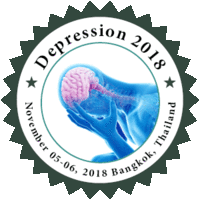
Biography
Biography: Meenakshi Banerjee
Abstract
The neurobiological underpinnings of Depression have been now widely recognized and researched. Studies have shown that multiple brain mechanisms play a major role in the pathology, primality the limbic and prefrontal networks. It is the disruption of the control of prefrontal over the hyperactive limbic regions that causes excessive ruminations and decreased ability to think clearly. Cognitive control involves working memory, response inhibition and mental flexibility. We propose that training on these areas may help recover these functions and rewire the brain for cognitive control back to the frontal. We present the findings of 10 cases seen for cognitive control training. All the cases were diagnosed with Depression and scored 17 or above on BDI prior to intervention. They were also assessed on BAI, Metacognitive questionnaire, cognitive emotion regulation questionnaire and quality of life and satisfaction questionnaire along with neuropsychological measures before and after the 18-session intervention. The training involved tasks which focused on Cognitive Control functions of cold (purely cognitive) and hot (cognitive-emotional) networks. The results indicate that training these networks may be beneficial in uplifting the mood while also improving cognitions. The improvement is also reflected in better emotional regulation and reduced negative metacognitions.

